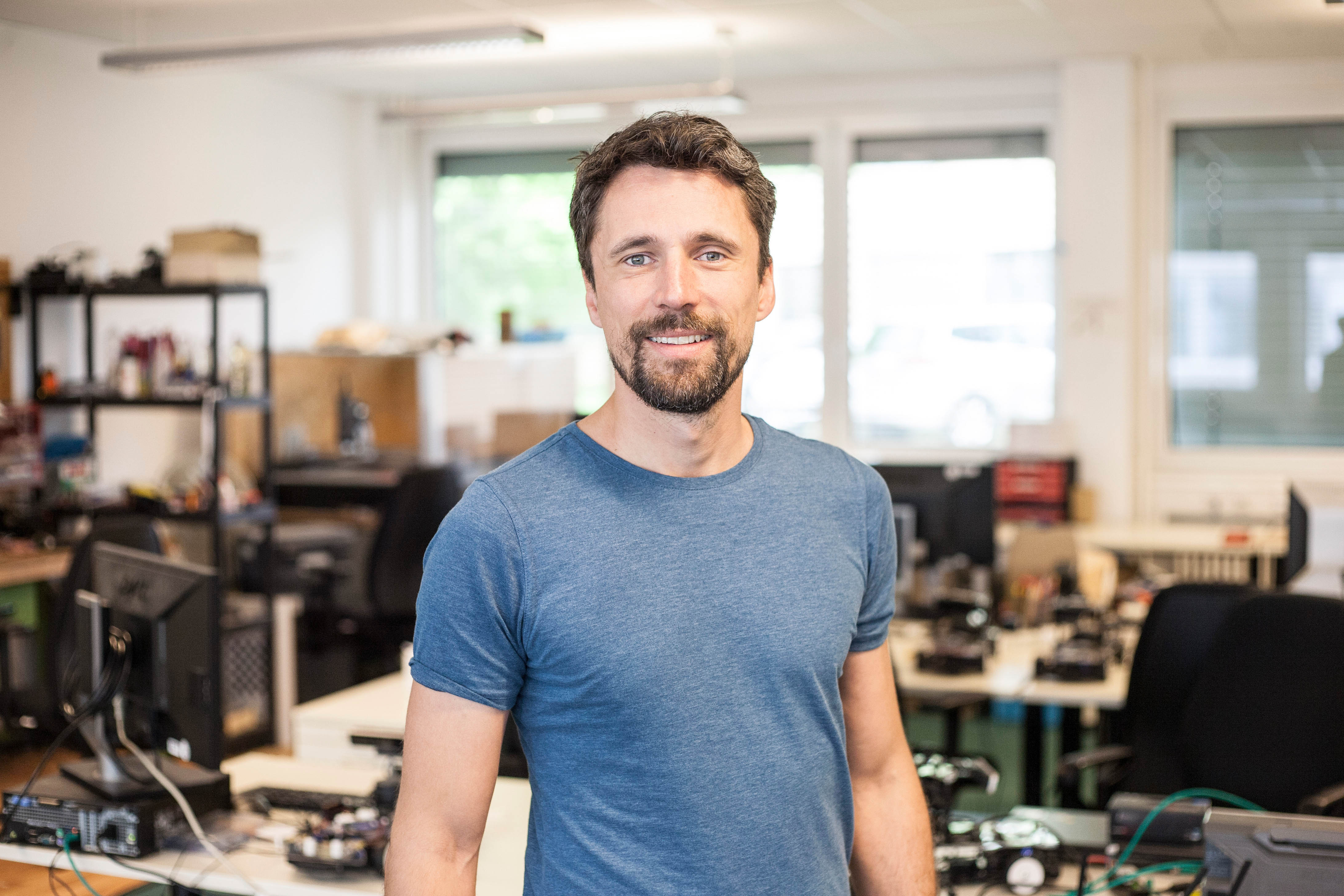
Brain City Berlin Ambassador: Prof. Dr. Tim Landgraf (FU Berlin)
Dr. Tim Landgraf is Professor at the Dahlem center for Machine Learning and Robotics (DCMLR) at Freie Universität Berlin. His research focus is "Collective Intellicence and Biorobotics". In his current projects "RoboFish" and "BeesBook" he investigates the social behavior of guppies and bees in order to unerstand biological intelligence and refine artificial intelligence.
Brain City Berlin: Prof. Dr. Landgraf, how would you describe your research focus?
Landgraf: In complex systems, the interaction of many parts creates something new: be it neurons in the brain or bees in the bee colony. In my research, I use modern computer science methods such as machine learning and robotics to learn more about the hidden rules of a complex biological system. How can a beehive collect food, feed fry, regulate temperature and fight off enemies at the same time? What paths does the information take through the "Internet of Bees"? When I replace a fish in a swarm with a robot, I can check whether his movements or interactions are prorammed according to current theories. But do those theories prove to be correct? And do the fish react like theory is predicting?
Brain City Berlin: What is the most exciting aspect of your research?
Landgraf: We work on almost the entire spectrum of computer science. In addition, there are the relevant parts of biology. We have to manage and process huge amounts of data, master machine learning and statistics, design mathematical models, build hardware etc. It is a challenge to bring all these parts together. But it's also a huge reward when this "research machine" is up and running.
Brain City Berlin: What do you like about life in Berlin?
Landgraf: Berlin is green and wide, can be loud and quiet, is cosmopolitan and still affordable.
Brain City Berlin: Which cooperations does your research profit from?
Landgraf: I work with biologists and physicists on various collaborations. In the "RoboFish" project, I cooperate closely with three scientists: Prof. Dr. Jens Krause, Dr. David Bierbach and Dr. Pawel Romanczuk (Leibniz Institute for Freshwater Ecology and Inland Fisheries/HU Berlin). At Freie Universität Berlin I do research with Prof. Dr. Dr. hc. Randolf Menzel on the navigation intelligence of honeybees. And in the project "BeesBook" I analyze the social network of bees together with Prof. Dr. Dirk Brockmann of Robert koch-Institut (RKI) .
Brain City Berlin: What advantage does Berlin offer over other research locations?
Landgraf: I have my most important scientific research partners in Berlin. Especially in interdisciplinary projects it is important to work closely. We also recruit students from the Freie Universität Berlin who make an important contribution to our research with their Bachelor's or Master's theses. Berlin attracts students from all over the world!
Brain City Berlin: What advice would you give to young people interested in studying in Berlin?
Landgraf: You have many opportunities in Berlin. Take a look at the many options, talk to your future fellow students. Berlin is open and diverse. Here you will certainly find what you are looking for.
Brain City Berlin: What developments do you want for the city?
Landgraf: A "green vision" for the city. For example, more and better cycle paths, free public transport and more charging stations for electric vehicles.
Brain City Berlin: What do you want for the future of science in Berlin?
Landgraf: We need an AI centre in Berlin in which Berlin's universities and universities of applied sciences work together on intelligent systems: common rooms, joint projects, research proposals and doctoral students. The Berlin AI Institute could also serve as an advisory and cooperation interface for politics, society, industry, etc. Our universities must offer joint degrees. In this way, we can increase the number of courses on offer in one go and make Berlin even more attractive. We also need joint, systematic support for start-ups.
Brain City Berlin: What message would you like to send to Brain City Berlin?
Landgraf: A brain becomes smarter through new connections!